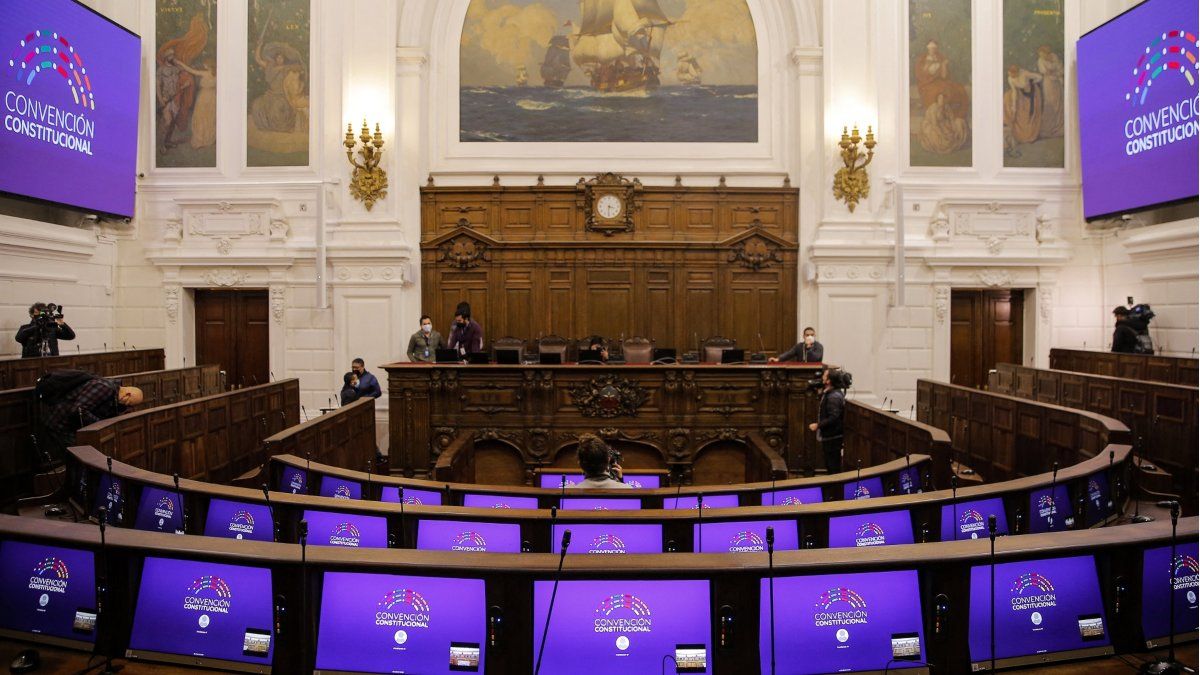Starting at 3:00 p.m. this Tuesday, the general discussion and voting of the proposals issued by the Justice System and State Form Commission, two of the seven that make up the convention, will take place.
In total there will be 21 plenary sessions to meet all the commissions until the deadline for this stage, April 22.
As Quinteros clarified, the potential articles will begin to be voted on in general as reports, that is, a report that contains a certain number of articles is voted for, which must obtain two thirds of the votes of the conventional ones (103) to be approved.
Subsequently, if it is approved, a particular vote will be held, that is, each article separately, which must also obtain two thirds of the votes to be definitively included in the New Constitution project.
In the particular voting of each article there are two other options in case of not obtaining the required quorum: obtain a majority without reaching two thirds and obtain a minority.
In the first case, the article returns to the respective commission to receive indications, modifications and then it can be sent back to the particular vote.
In the event that the article obtains the minority, it is rejected and has no possibility of being voted on again.
When the voting process ends, all the approved regulations in particular will be gathered by the board of directors in a text, which will continue its way to the last stage of the Constitutional Convention, which is the Harmonization Commissionwhich is made up of 40 conventional experts, who review in detail the technical quality and coherence of the text, to also identify possible contradictions between the standards.
The revised and corrected text by the Harmonization Commission is sent for a final vote in plenary.
The conventional ones have a deadline to deliver the draft of the New Constitution of Chile on July 4, 2022, which must be submitted to an exit plebiscite in which Chileans will vote to approve or reject the new Magna Carta.
This first week, on Tuesdays and Wednesdays, reports issued by the Commission on the Justice System and Form of the State will be voted on in general, and then article by article will be voted on on Thursday and Friday.
Currently in Chile, the 1980 Constitution, drafted during the dictatorship of Augusto Pinochet (1973-1990), is in force.
Only in November 2019, after the mobilizations and massive demonstrations of the so-called social outbreak of October of that year, an agreement was reached with the majority of the ruling and opposition parties to draft a New Political Constitution.
The crowds that took to the Chilean streets then pointed to the current Constitution as the source of inequality and demanded a new State model that would guarantee public health, universal quality education or improved pensions.
On October 25, 2020, through a national plebiscite, the drafting of the new Constitution was approved by a large majority. For this, more than 155 conventional were elected in May 2021.
The Convention, whose members were elected on a parity basis and with seats reserved for indigenous peoples, was installed on July 4 last and in its first six months it was dedicated to building an institutional framework from scratch.
The plebiscite on the new text will be held in the second half of 2022, already during the mandate of Gabriel Boricwho assumes the Presidency on March 11.
Source: Ambito
David William is a talented author who has made a name for himself in the world of writing. He is a professional author who writes on a wide range of topics, from general interest to opinion news. David is currently working as a writer at 24 hours worlds where he brings his unique perspective and in-depth research to his articles, making them both informative and engaging.




